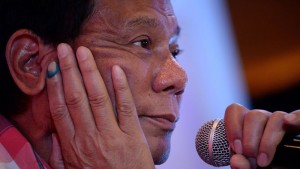Does the Association of Southeast Asian Nations or Asean make a difference in the lives of Filipinos, and of citizens in the other nine member-states? Will our chairing and hosting of this 10-nation grouping this year, on its 50th founding anniversary, be of any real consequence to us? Or is it merely a frivolous exercise costing us valuable taxpayer money? My answers would be yes, yes, and no, respectively, and let me explain why.
Twenty years ago, at its 30th anniversary in Kuala Lumpur, Malaysia, the Asean leaders adopted Asean Vision 2020. It saw Asean, by three years from now, as being “a concert of Southeast Asian Nations, outward looking, living in peace, stability and prosperity, bonded together in partnership in dynamic development and in a community of caring societies.” The group’s leaders further refined that vision in 2003 in Bali, Indonesia, as the attainment of an Asean Community built on three pillars: the Asean Political-Security Community, Asean Socio-Cultural Community, and Asean Economic Community. In 2008 in Cebu, it was agreed to advance the attainment of that goal by five years, to the end of 2105. The grouping has since defined a renewed Asean Community 2025 Blueprint under the three pillars, now the guidepost for the 10 nations’ collective work.
Asean has come a long way since its inception in 1967, even as it has much more to do in pursuit of its lofty dreams. Ambassador Rodolfo Severino, at the end of his term in 2002 as Asean secretary general, lamented the group’s sluggish pace. Lack of political will has been blamed for this, traced in turn to absence of a mechanism to enforce discipline in fulfilling agreed commitments, whether policy reforms, or specific initiatives or projects. No strong dispute settlement mechanism is in place for instances when certain members may feel aggrieved by actions, or lack of them, by (an)other member(s). In true Asian fashion, members would rather smile and politely look the other way when other members do not live up to certain commitments.
While Asean in its early days was primarily a political union, its efforts toward economic integration have gained widest attention, particularly the establishment of the Asean Free Trade Area (Afta) in 1992, and now the Asean Economic Community. Removing trade barriers among the region’s economies has been largely accomplished, although many nontariff barriers remain. From the Philippines’ point of view, Asean as a bloc has become our largest trading partner, now accounting for 20.6 percent of our total trade, eclipsing erstwhile leaders Japan and the United States, with 14.4 and 12.7 percent, respectively. Our manufacturing sector has been surging at an average annual growth rate of 7.8 percent since 2010 (compared to annual average growth of only 3 percent before that). That was the year when duties on Asean traded goods dropped to zero, and the Asean-China free trade agreement took effect. And so I attribute to Asean, to a large extent, how we may finally be catching up on the industrialization that we missed in the 1990s, when China took the lion’s share of the business in the region.
As chair and host of Asean this year, the Philippines heightens its championing of micro, small and medium enterprises (MSMEs) as the most potent drivers of inclusive and equitable growth in individual economies and in the region as a whole. Government negotiators are pursuing this under the three strategic thrusts of 1) increasing trade and investment, 2) integrating MSMEs into the global value chains, and 3) developing an innovation-led economy. Specific measures we are advancing include trade facilitation measures (i.e., simpler trade clearance procedures at customs) that would benefit MSMEs, wider availability of electronic commerce platforms connecting small enterprises directly to buyers of their products and sellers of their raw materials abroad, and initiatives to widen MSMEs’ access to productivity-enhancing equipment, innovative techniques and technology-enabled business models. With these, Asean can truly work for the wider benefit of Filipinos, and of the peoples of the entire Southeast Asia.
cielito.habito@gmail.com


